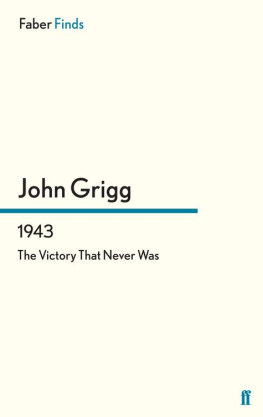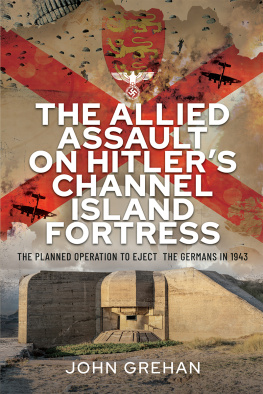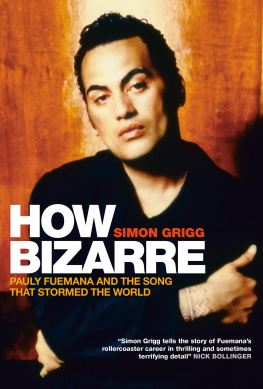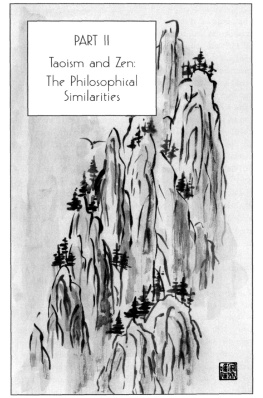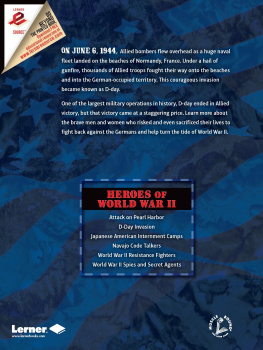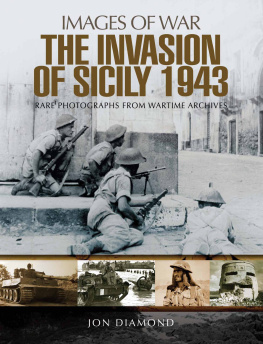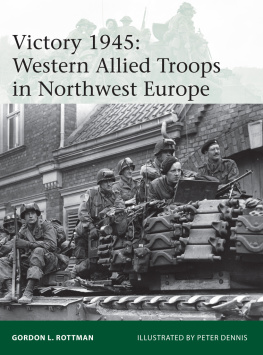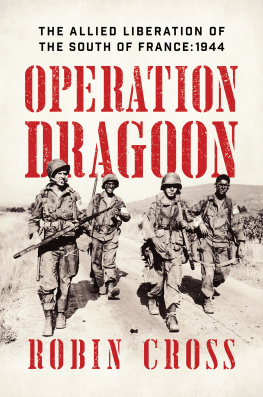Twenty years ago, when this book was written, there was an overwhelming belief that the Second World War was nobler and more just than the First, and that it was conducted by British leaders with far greater efficiency and strategic grasp. Today the prejudice persists, though to a diminishing degree. More people now are prepared to say that Britain was right to intervene in 1914, and that the nations motives throughout the ensuing war were at least as idealistic as in 193945. Some, toothough fewerare prepared to question the superiority of British leadership and performance in the second war, compared with the first. On both counts, what used to be an almost universal view of the two wars is still the majority view. Conventional wisdom dies hard.
This book is chiefly about policy and strategy from 1941 onwards. Moral issues arise, but not as the main theme. Before Churchill took over, Britains showing in the second war was by any standards undistinguished . His conduct in 1940 was truly heroic and inspired. In the first year of his premiership he and the country captured the worlds imagination (not, it must be said, standing alone, but with vital support from the Dominions, India, the Colonial empire and an America whose president bent the rules of neutrality). Yet the epic of 194041 has so dazzled posterity that Britains subsequent war effort and Churchills leadership through the rest of the war have attracted far less critical attention than they deserve.
Of course there is still much to admire and praise in 194145, and in any case the war was ultimately won. But it took longer to win than the first war, even from the time (June 1941) when Russia was attacked. America was belligerent for nearly four years in the second war, compared with only seventeen months in the first, and made an immeasurably larger contribution to victory. True, Japan was a formidable enemy instead of an ally (of limited value), but on the other hand we had to contend with the Ottoman empire in the first war, whereas in the second Turkey was neutral. (The significance of Italy in both wars is complex and hard to fit into the equation.)
One point should be stressed: leaders in the second war had a huge advantage over their predecessors in the mere fact that it was the second. In 191418, world war was an entirely new experience, confronting politicians and service chiefs alike with problems that were without precedent. Leaders in the second war had the lessons of the first to guide them. Even so, it may well be thought that they made just as many mistakes, though they have so far received an invidiously better press.
What sort of press did my book get? On the whole reviewers were very generous to it on the score of readability, and paid me the compliment of taking the arguments in it seriously. One or two indulged in some tut-tutting about my what if approach. But very soon afterwards, by coincidence, Hugh Trevor-Roper (Lord Dacre of Glanton) gave this approach to history his blessing. In his inaugural lecture as Regius Professor at Oxford he said: History is not merely what happened: it is what happened in the context of what might have happened. Therefore it must incorporate the might-have-beens. Today historical hypotheses are all the rage, under the rather misleading title counter-factual history (misleading, because it suggests that the facts themselves are being challenged, rather than their deterministic necessity). It is right, surely, first to get the record straight, and then to argue about the past. Facts are facts, but that does not mean that they are, or ever were, inevitable.
On the substance of the book, most reviewers found reasons for dissenting from its central thesisthat a cross-Channel Allied invasion might have been mounted in 1943, with a good chance of success. Many contributory arguments are now generally accepted. For instance the Allies crass mishandling of the Italian armistice negotiations, and its bearing on subsequent events, is now hardly a matter of dispute. The attempt to win the war by the indiscriminate terror bombing of civilians is probably more widely condemned today as a colossal mistake as well as a crime. And there is growing awareness of the enormity of Roosevelts mistake, which Churchill after a time compounded, in being so hostile to de Gaulle and his movement. Yet the essence of what I was trying to suggest remains controversial, and still has to make its way against arguments which I believe to be fallacious.
Instead of trying to deal with a number of critics, I will concentrate here on John Keegans review in the TimesLiterarySupplement, which seems to me the best statement of the case against mine. And I will focus on his two apparently strongest points: (i) that at the time of a cross-Channel invasion in 1943 Hitlers armoured strength, still unreduced by the great tank battle of Kursk on the Russian front, would have proved too much for the invaders, and (ii) that the available American forces, though already sufficient in numbers, would not have been adequately prepared for battle.
The first point presupposes that operations on the Russian front would have been no different in the summer of 1943 if the Allies had decided to open a proper second front then rather than a year later. But surely they would have been different. If the Russians had been told, after the Casablanca conference, that the Western Allies were planning to land in north-west Europe in the late spring, they would have planned an offensive to coincide with the Allied landings. They would have done this not, of course, for the Allies beauxyeux, but because they could not afford to let the invasion fail. As it was, they were told after Casablanca that there would be no cross-Channel invasion in 1943, but that Anglo-American operations that year would be largely confined to the Mediterranean theatre. It is hardly surprising, therefore, that they chose to adopt a defensive posture in the spring of 1943, and that the titanic armoured battle began only when the Germans attacked in July.
If the Russians had attacked in June, the German strategic reserve would not have been free to concentrate against the Allied bridgehead , but would have been torn both ways, with the additional handicap that the two fronts would have been far more widely separated. In the spring of 1943 the Eastern front was still hundreds of miles inside the Soviet Union. Besides, Hitler was preoccupied with Russia and tended to take a cavalier view of the cross-Channel threat. Even in 1944 there wasaccording to Richard Overy in RussiasWar (1997)no major movement of manpower westward to cope with the invasion of France. The previous year, when Hitler still had a rational hope of destroying the Red Army and achieving total victory in the East, he would surely have been at least equally reluctant to switch armoured strength from what he regarded as the vital front.
The argument about American battle-preparedness rests heavily upon the setback experienced by US troops in the Kasserine Pass engagement in Tunisia. It is true that the first impact of Rommels attack did throw the Americans guarding the Pass into temporary disarray , just as the Germans Ardennes offensive caused a temporary local collapse in December 1944. But on the first occasion, as on the second, the Americans soon pulled themselves together. After a few days at Kasserine, Liddell Hart tells us, Rommel became impressed by the growing tactical skill of the Americans.
In any case, it is quite wrong to argue from Kasserine that the American army as a whole was unfit for serious combat. Already, unseasoned American troops had shown great doggedness in the Bataan peninsula, on Corregidor and on Guadalcanal. Eight months later the US 36th division, without previous battle experience, showed conspicuous fortitude in a tight spot at Salerno. In the 1944 Normandy landings a large proportion of the American troops were new to battle, which was one reason why Hitler underrated the cross-Channel threat. I am sure that they would have done just as well in 1943 as in 1944with the benefit of much better weather.

